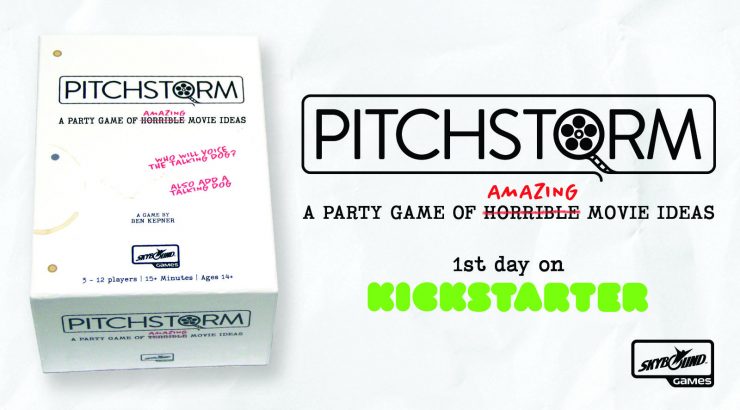
From Film Production to Tabletop Game Design Ben Kepner (BFA/FP '13)
June 12, 2018
In most senses, filmmaking and tabletop game design are worlds apart. Ben Kepner graduated from Chapman with a degree in film production in 2013, and at the time didn’t know that tabletop game design was a viable career path. But six years later, after a few lucky encounters and a lot of hard work, landed a job at Skybound Entertainment as a tabletop game designer.
The “ah ha” moment for me, was when I realized that my favorite games tell stories. The best games even have solid act breaks like a screenplay. But unlike a film, this happens intuitively, without a writer to guide the narrative. Chess is a perfect example. The game starts off slow, with both players sizing each other up. The action heats up when players start to trade their pieces in pursuit of the enemy’s king. After the carnage of Act II, Act III is an intimate, high stakes showdown between the surviving pieces.
my favorite games tell stories. The best games even have solid act breaks like a screenplay. But unlike a film, this happens intuitively, without a writer to guide the narrative. Chess is a perfect example. The game starts off slow, with both players sizing each other up. The action heats up when players start to trade their pieces in pursuit of the enemy’s king. After the carnage of Act II, Act III is an intimate, high stakes showdown between the surviving pieces.
Board games also have characters in much the same way that films do. In modern games especially, the designers often go to pains to give flavorful details about the characters involved in the action, but like a film, every aspect of game can give nuance to a character. The way a piece moves, or where it starts on the board, gives hints about what type of character the piece represents in the game. At the end of the day it all boils down to “how to tell a compelling story with interesting characters.”
On June 12th, I will be launching the Kickstarter for my first game, a party card game about pitching movies called “Pitchstorm.” One of my key goals in designing the game was to take the concept of storytelling and character in tabletop games and make sure that they came through, even in the condensed form of a party game. For example, everyone at the table has a role to play. Players are writers trying to sell their movies, and the judge for the round is an executive with some truly terrible ideas that everyone has to listen to. The judge cards are almost a character in and of itself—all of the executive’s notes are filled with double-speak and coddling to make their terrible ideas seem more reasonable. While testing the game, it was amazing to see how quickly new players lapse into the persona of a movie-executive and start making the pitches terrible for everyone else.
During my time at Chapman, I wasn’t expecting to find a career in tabletop game design. But now that I’ve stumbled on to one, I’m amazed at just how useful the storytelling skills we hone at Dodge have been. If you have questions about the Kickstarter, game design, movies or just want to say high hello, feel free to hit me up at benkepner@gmail.com or @kepnerator on twitter.

